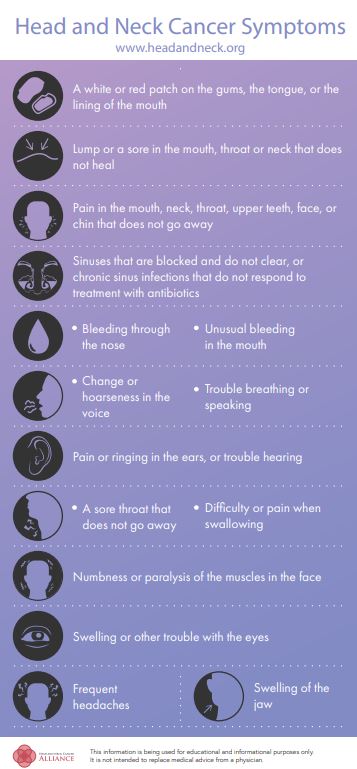HOUSTON — Most new diagnoses of oropharyngeal cancer, a type of head and neck cancer, are driven by human papillomavirus (HPV) infections, with distinct genetic and immune differences in HPV-driven and non-HPV-driven head and neck cancer, according to a new study.
The genetic association study published in the journal Cancer Research examined 4,012 head and neck cancer cases and 16,048 cancer-free controls from the multiethnic VA Million Veteran Program (MVP) cohort. The MVP was initiated by the VA in 2011 to collect genomic, epidemiologic and clinical data from at least one million veterans (18–90 years old, approximately 95% males) to study the role of genetics, lifestyle and military experiences in the development of human diseases.1
This topic was of interest to the researchers because the association between known cancer-related immune gene variants and head and neck squamous cell carcinoma had not been fully explored. Information about head and neck cancer also is of increasing importance to the VA because the recently enacted PACT Act added 23 conditions to VA’s presumptive list for military toxic exposure, including head cancers and neck cancers of any type.
“Our analysis revealed striking and distinct association signatures across HPV-driven and non-HPV-driven head and neck cancer,” Yanhong Liu, PhD, assistant professor in the Department of Medicine at Baylor College of Medicine, told U.S. Medicine. “We also found that immune gene variant profiles in head and neck cancer susceptibility vary across racial/ethnic groups. One novel finding is that the association of a non-classical HLA class I molecule, HLA-G, was specific to African Americans, whereas the association of HLA Class II genes was exclusively observed in non-Hispanic whites.”
The study found HPV infection drives most new oropharyngeal cancer diagnoses (>70%) in the U.S., and HPV-positive oropharyngeal cancer exhibits distinct genetic and immune profiles from HPV-negative nonoropharyngeal cancer. These insights may serve as a starting point for the development of genetically-informed approaches to head and neck cancer screening and risk assessment in the veteran population, Liu wrote in an email.
Most previous studies lacked detailed information on HPV status among oropharyngeal cancer, and no genetic studies have specifically evaluated the association between collectively known cancer-related immune gene variants and head and neck cancer susceptibility, Liu added.
“We believe that results from our study will have relevance to the development of head and neck cancer screening programs, genetic counseling, and targeted interventions (e.g., HPV vaccination and smoking cessation), which can ultimately reduce the burden of head and neck cancer,” Liu explained in an email.
Head and neck squamous cell carcinoma, which includes cancers of the oral cavity, pharynx and larynx, is the seventh-most-common type of cancer globally. Head and neck squamous cell carcinomas are primarily diagnosed in men in their 60s and 70s and commonly subdivided into HPV-driven oropharyngeal cancers or non-HPV-related cancers, typically related to tobacco and/or alcohol use. These carcinogen-mediated cancers can also occur in the oropharynx but are more common at nonoropharyngeal sites.
Over the past few decades, the incidence of oropharyngeal cancers has increased exponentially. Mostly driven by epidemic increases in oral HPV infection in the general population, up to 80% of oropharyngeal cancers are HPV-positive, with oropharyngeal cancers now overtaking cervical cancer as the leading cause of HPV-related cancer in the U.S.
Increasing rates of HPV-driven oropharyngeal cancer have largely offset declines in tobacco-associated head and neck cancer at nonoropharyngeal sites. The rate of nonoropharyngeal head and neck squamous cell carcinoma has steadily decreased, mirroring declining smoking rates in the U.S. population.
Host immunity is an important modulator of HPV infection and persistence/clearance, as well as of immune evasion in both HPV virally- and nonvirally-driven cancers.
“We hypothesized that immune variants may confer an immune advantage to the virus or the host and thus play a prominent role in head and neck cancer susceptibility,” Liu wrote in an email.
Large studies have supported a substantial heritable genetic component to head and neck squamous cell carcinoma susceptibility. Previous studies have found polymorphisms in immune-mediator genes associated with susceptibility to persistent HPV infection and HPV-driven cancers. Several genomewide association studies have identified over 14 particular points for predisposition to head and neck squamous cell carcinoma.
This genetic association study validated previously observed associations with genetic polymorphisms of specific HLA Class II alleles. The HLA Class II associations along with other immune components dominated the findings for HPV-driven oropharyngeal cancer. DNA damage-related loci like Fanconi Anemia Complementation Group A (FANCA) seemed specific to the HPV-negative nonoropharyngeal cancer, consistent with the predominance of tobacco etiology, Liu explained in an email.
A key finding of the study is that several-inherited variations in immune system genes are significantly associated with susceptibility to head and neck cancer, which could help improve personalized cancer risk estimates.
“Our study underscores the role of immune gene variants in modulating susceptibility for both HPV virally-driven and nonvirally-driven head and neck cancers,” Liu explained.
Additional large studies, particularly in racially diverse populations, are needed to further validate the associations and to help explain other potential immune factors and mechanisms that may underlie head and neck squamous cell carcinoma risk, according to the study.
- Liu Y, Kramer JR, Sandulache VC, Yu R, Li G, Chen L, Yusuf ZI, Shi Y, Pyarajan S, Tsavachidis S, Jiao L, Mierzwa ML, Chiao E, Mowery YM, Shuman A, Shete S, Sikora AG, White DL. Immunogenetic Determinants of Susceptibility to Head and Neck Cancer in the Million Veteran Program Cohort. Cancer Res. 2022 Nov 15:CAN-22-1641. doi: 10.1158/0008-5472.CAN-22-1641. Epub ahead of print. PMID: 36378845.



